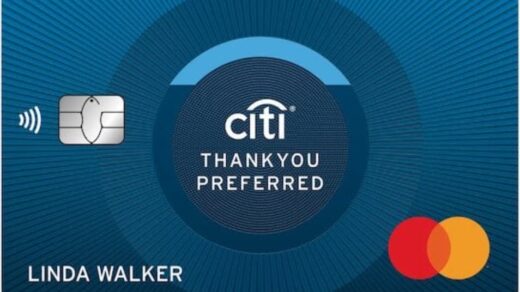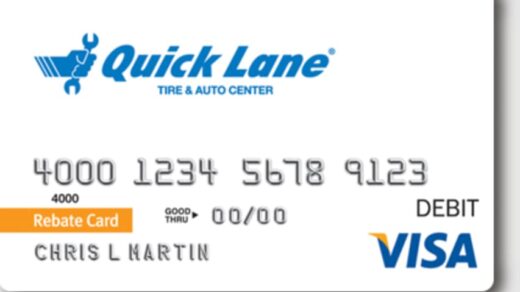Caring for elderly or disabled family members can be challenging, both emotionally and financially.
In Singapore, the government recognizes this challenge and offers support through the Home Caregiving Grant (HCG).
This grant provides financial assistance to families who need help caring for their loved ones at home.
The Home Caregiving Grant is designed to ease the burden on families who might otherwise struggle to provide proper care.
It offers up to $400 per month to eligible households, which can make a significant difference in managing caregiving expenses.
In this guide, we’ll explore the details of the Home Caregiving Grant 2024. We’ll look at who can claim this grant, how to apply, and when payments are made.
Whether you’re a caregiver yourself or you’re helping a family member navigate this process, this information will be valuable to you.
Home Caregiving Grant Singapore 2024: Claim a $400, Payment Dates

We’ll cover important topics like eligibility criteria, reasons why you might need this grant, and the payment schedule for 2024.
By the end of this guide, you’ll have a clear understanding of how the Home Caregiving Grant works and how it can benefit your family.
Let’s dive into the details of this important support system for caregivers in Singapore.
Home Caregiving Grant 2024
The Home Caregiving Grant (HCG) is a key part of Singapore’s support system for families caring for elderly or disabled members.
Let’s break down what this grant is all about:
What is the Home Caregiving Grant?
- It’s a monthly cash payout to help families with caregiving expenses
- The grant can be up to $400 per month for eligible households
- It’s designed to support families who are caring for loved ones at home
Why was it created?
The Singapore government created this grant because:
- They recognize that home care can be expensive
- Many families prefer to care for their loved ones at home rather than in institutions
- It helps to ease the financial burden on families
What can the grant be used for?
The grant is flexible and can be used for various caregiving needs, such as:
- Hiring a domestic helper
- Paying for home nursing services
- Buying caregiving supplies and equipment
- Covering transportation costs for medical appointments
How long has it been available?
- The Home Caregiving Grant was introduced in 2019
- It’s part of Singapore’s overall strategy to support an aging population
Is it the same as other care support schemes?
- No, the HCG is different from other schemes like ElderShield or CareShield Life
- It’s meant to complement these other programs, not replace them
How does it help families?
The grant helps in several ways:
- It gives families more options for care arrangements
- It can reduce the need for family members to quit their jobs to provide care
- It improves the quality of life for both caregivers and care recipients
What’s new in 2024?
While the basic structure of the grant remains the same, there might be updates to:
- Eligibility criteria
- Application processes
- Payment methods
It’s always a good idea to check the official Agency for Integrated Care (AIC) website for the most up-to-date information.
Remember, the Home Caregiving Grant is just one part of Singapore’s support system for caregivers.
There are other schemes and services available, and it’s worth exploring all your options to find the best support for your family’s needs.
Who Can Claim a $400 Caregiving Grant in Singapore?
The Home Caregiving Grant in Singapore is designed to help specific groups of people. Let’s look at who can claim this $400 grant:
1. Care Recipients:
- Singaporean citizens or permanent residents
- People with severe disabilities
- Individuals who need help with at least three Activities of Daily Living (ADLs)
What are Activities of Daily Living (ADLs)?
ADLs are basic self-care tasks, including:
- Washing
- Dressing
- Feeding
- Toileting
- Walking or moving around
- Transferring (e.g., from bed to chair)
2. Caregivers:
- Family members caring for eligible care recipients
- They must be living in the same household as the care recipient
3. Income Criteria:
- The household monthly income must not exceed $2,800 per person
- For households with no income, the Annual Value of their residence must not exceed $13,000
4. Age Requirements:
- There’s no specific age requirement for the care recipient
- However, the grant is often used by families caring for elderly members
5. Residential Status:
- The care recipient must be living in Singapore
- They cannot be residing in a long-term care institution (e.g., a nursing home)
6. Property Ownership:
- Families owning one property can receive the full $400 grant
- Those with multiple properties may receive a reduced amount of $250
How to Check Eligibility:
- Visit the AIC website
- Use their eligibility checker tool
- Answer a few simple questions about your situation
What if I’m not sure?
If you’re unsure about your eligibility:
- Contact the AIC hotline for guidance
- Speak to a social worker at your nearest Social Service Office
- Ask for help at your local Community Centre
Important Notes:
- Eligibility is reviewed regularly
- You may need to reapply or provide updated information periodically
- Always check the latest criteria as they may change from year to year
Remember, the goal of this grant is to help those who truly need it. If you think you might be eligible, it’s worth checking.
The $400 per month can make a big difference in providing quality care for your loved one.
Home Caregiving Grant Eligibility?
Understanding the eligibility criteria for the Home Caregiving Grant is crucial. Let’s break down the requirements in detail:
1. Citizenship and Residency:
- The care recipient must be a Singapore citizen or permanent resident
- If the care recipient is a permanent resident, their spouse or child must be a Singapore citizen
- The care recipient must be living in Singapore, not abroad
2. Care Needs:
- The care recipient must need help with at least three Activities of Daily Living (ADLs)
- This need must be assessed and certified by a doctor
3. Income Criteria:
- Per capita monthly household income must not exceed $2,800
- For households with no income, the Annual Value of their residence must not be more than $13,000
4. Living Arrangement:
- The care recipient should be living in the community
- They should not be staying in a residential long-term care institution
5. Property Ownership:
- Families with one property can receive the full $400 grant
- Those with multiple properties may receive a reduced grant of $250
6. Other Support Schemes:
- Receiving other forms of government support doesn’t automatically disqualify you
- However, it may affect the amount of grant you receive
7. Caregiver Relationship:
- The primary caregiver is usually a family member
- They don’t need to be a Singapore citizen or permanent resident
8. Age of Care Recipient:
- There’s no specific age requirement
- The grant is available for both elderly and younger individuals with severe disabilities
9. Reassessment:
- Eligibility is not permanent and may be reassessed periodically
- You may need to reapply or provide updated information
How to Prove Eligibility?
- Medical Assessment:
- Get a doctor’s certification for the care recipient’s condition
- This should detail the need for help with ADLs
- Income Documentation:
- Provide recent payslips or income tax statements
- For those with no income, provide property tax bills
- Residency Proof:
- Show the care recipient’s NRIC or other official documents
- Property Ownership:
- Provide property ownership documents if applicable
What If My Situation Changes?
- You must inform AIC if there are changes in:
- The care recipient’s condition
- Household income
- Living arrangements
- Property ownership
Tips for Applying:
- Gather all necessary documents before starting the application
- Be honest and accurate in your application
- If in doubt, seek help from AIC or a social worker
Remember, meeting the eligibility criteria is just the first step. You’ll still need to go through the application process to receive the grant. But if you meet these requirements, you’re on the right track to getting the support you need for caregiving.
Reason To Get HCG
The Home Caregiving Grant (HCG) can be a lifeline for many families in Singapore. Here are some compelling reasons why you might want to apply for this grant:
1. Financial Support:
- Caregiving can be expensive
- The grant provides up to $400 per month to help with costs
- This extra money can make a big difference in your budget
2. Flexibility in Care Arrangements:
- You can use the money in various ways to support caregiving
- It gives you more options in how you provide care
3. Support for Hiring Help:
- The grant can help pay for a domestic helper
- This is especially useful if family members work full-time
4. Improving Quality of Care:
- With extra funds, you can afford better care supplies
- You might be able to pay for services that improve the care recipient’s quality of life
5. Reducing Caregiver Stress:
- Financial strain is a major source of stress for caregivers
- The grant can help alleviate some of this stress
6. Enabling Home Care:
- Many people prefer to be cared for at home
- The grant makes it more feasible to provide care at home instead of in an institution
7. Supporting Family Caregivers:
- If a family member is the primary caregiver, the grant can help compensate for lost income
- It recognizes the value of the care provided by family members
8. Covering Additional Expenses:
- The grant can help with unexpected caregiving costs
- It provides a buffer for medical expenses not covered by insurance
9. Encouraging Family Involvement:
- The grant makes it easier for families to be involved in caregiving
- It can help prevent the isolation of care recipients
10. Long-term Planning:
- The grant helps families plan for long-term care needs
- It can be part of a broader caregiving strategy
11. Accessing Better Resources:
- With the grant, you might be able to afford better equipment or resources
- This could include things like mobility aids or home modifications
12. Reducing Burden on Healthcare System:
- By supporting home care, the grant helps reduce the burden on hospitals and nursing homes
- This is beneficial for both families and the broader healthcare system
13. Maintaining Independence:
- The grant can help care recipients maintain some independence
- It supports arrangements that allow people to stay in familiar surroundings
14. Complementing Other Support:
- The HCG can be used alongside other forms of support
- It fills gaps that other schemes might not cover
15. Peace of Mind:
- Knowing you have this financial support can provide peace of mind
- It allows you to focus more on caregiving and less on financial worries
Remember, every family’s situation is unique. The Home Caregiving Grant might be helpful in ways specific to your circumstances. If you think it could benefit your family, it’s worth exploring further and applying if you’re eligible.
HCG Payment Dates 2024
Understanding when and how you’ll receive the Home Caregiving Grant (HCG) payments is important for your financial planning. Here’s what you need to know about HCG payment dates for 2024:
General Payment Schedule:
- The HCG is typically paid out monthly
- Payments are usually made at the end of each month
- The exact date might vary slightly from month to month
First Payment in 2024:
- For new applicants approved in early 2024, the first payment is expected in March 2024
- This allows time for processing and verification of applications
Regular Payment Cycle:
- Once you’re in the system, you should receive payments regularly each month
- The payment date is usually consistent from month to month
Payment Method:
- Most payments are made via electronic transfer
- You’ll need to provide bank account details during the application process
What If There’s a Delay?
- If you don’t receive your payment as expected, contact the Agency for Integrated Care (AIC)
- They can check on the status of your payment and resolve any issues
Specific Dates to Note:
While exact dates can vary, here’s a general outline of payment dates for 2024:
- January 2024: Last week of the month
- February 2024: Last week of the month
- March 2024: Last week of the month (including first payments for new applicants)
- April 2024: Last week of the month
- May 2024: Last week of the month
- June 2024: Last week of the month
- July 2024: Last week of the month
- August 2024: Last week of the month
- September 2024: Last week of the month
- October 2024: Last week of the month
- November 2024: Last week of the month
- December 2024: Last week of the month
Important Things to Remember:
- Keep your contact and bank information up to date
- Inform AIC of any changes in your circumstances that might affect eligibility
- Check your bank account regularly to ensure you’re receiving the payments
What If You’re Not Eligible for the Full Year?
- If your eligibility changes during the year, payments will be adjusted accordingly
- You might receive pro-rated payments for partial months of eligibility
Annual Review:
- Your eligibility for the grant is typically reviewed annually
- This might affect your payment schedule for the following year
Additional Support:
- Remember, the HCG is just one form of support
- Check for other grants or assistance programs you might be eligible for
By staying informed about the payment dates and process, you can better manage your caregiving expenses and plan your finances effectively. If you have any questions or concerns about your payments, don’t hesitate to reach out to AIC for clarification.
Conclusion
The Home Caregiving Grant (HCG) in Singapore is a valuable resource for families caring for elderly or disabled loved ones. Let’s recap the key points we’ve covered:
1. Purpose of the Grant:
- The HCG provides financial support to families providing care at home
- It offers up to $400 per month to eligible households
2. Eligibility:
- Care recipients must be Singapore citizens or permanent residents
- They must need help with at least three Activities of Daily Living
- There are income and property ownership criteria to meet
3. Application Process:
- Applications are made through the Agency for Integrated Care (AIC)
- You’ll need to provide medical assessments and financial documentation
4. Payment Dates:
- Payments are typically made monthly
- For 2024, new applicants can expect their first payment in March
- Regular payments continue throughout the year
5. Benefits of the Grant:
- Provides financial relief for caregiving expenses
- Offers flexibility in care arrangements
- Supports the preference for home-based care
6. Considerations:
- Eligibility is reviewed periodically
- You must inform AIC of any changes in your circumstances
- The grant can be used alongside other forms of support
Key Takeaways:
- The HCG is a significant help for many families in Singapore
- It recognizes the challenges of caregiving and provides tangible support
- Understanding the eligibility criteria and application process is crucial
- Regular payments in 2024 provide ongoing support throughout the year
Looking Ahead:
As Singapore’s population ages, support for caregivers will likely continue to evolve.
The Home Caregiving Grant is an important part of this support system, but it’s always good to stay informed about other available resources and any changes to existing programs.
Also Check: EduCity Park Frisco LLC TX Lawsuit
Final Thoughts:
Caregiving is a challenging but rewarding responsibility. The Home Caregiving Grant aims to make this task a little easier by providing financial support.
If you think you might be eligible, don’t hesitate to apply. This grant could make a significant difference in your ability to provide quality care for your loved one at home.
Remember, you’re not alone in this journey. There are resources and support available. The Home Caregiving Grant is just one way that Singapore is working to support families in their caregiving efforts.
By taking advantage of this and other available support, you can provide the best possible care for your loved one while also taking care of your own needs.



